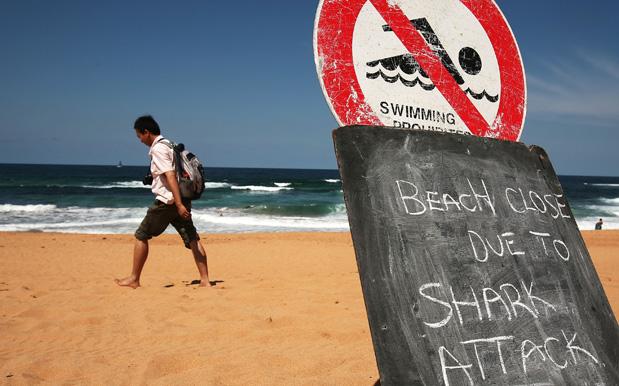ADELAIDE (Australia)- If all Australians that go into the ocean were to use electronic deterrents, over a thousand people could avoid being bitten by a shark across Australia in the next 45 years.
Research funded by the Flinders University Marine and Coastal Research Consortium has used data of the Australian Shark Attack File to make this prediction.
Electronic deterrents
Although chances are very small anyone is attacked by a shark, there are serious associated costs. At the moment electronic deterrents are the only types of personal deterrent with empirical evidence of a substantial reduction in the probability of being bitten by a shark.
Researchers Corey Bradshaw, Phoebe Meagher, Madeline Thiele, Robert Harcourt and Charlie Huveneers aimed to predict the number of people who could potentially avoid being bitten by sharks in Australia if they wear personal electronic deterrents. For this they used the Australian Shark Attack File from 1900 to 2020 to develop sinusoidal time-series models of per capita incidents, and then stochastically projected these to 2066.
Avoiding death and injury
The research predicts that up to 1063 people could potentially avoid being bitten across Australia by 2066 if all people used the devices. Avoiding death and injury of people over the next half-century is of course highly desirable, according to the scientists, “especially when considering the additional costs associated with the loss of recreational, commercial and tourism revenue potentially in the tens to hundreds of millions of dollars following clusters of shark-bite events.”
Shark bites
“Efforts attempting to reduce the risks of a shark bite, even if the risks themselves are low, are clearly valuable. While estimates of prevented bites we report here are small compared to injuries or death due to many other day-to-day hazards or activities, we should nonetheless attempt to reduce injuries or fatalities from shark bites. Shark bites create not only physical and emotional trauma for the victims, but for water goers in general, leading to a powerful social license for effective mitigation.”
Read more on the research Predicting potential future reduction in shark bites on people at the Royal Society Open Science.


